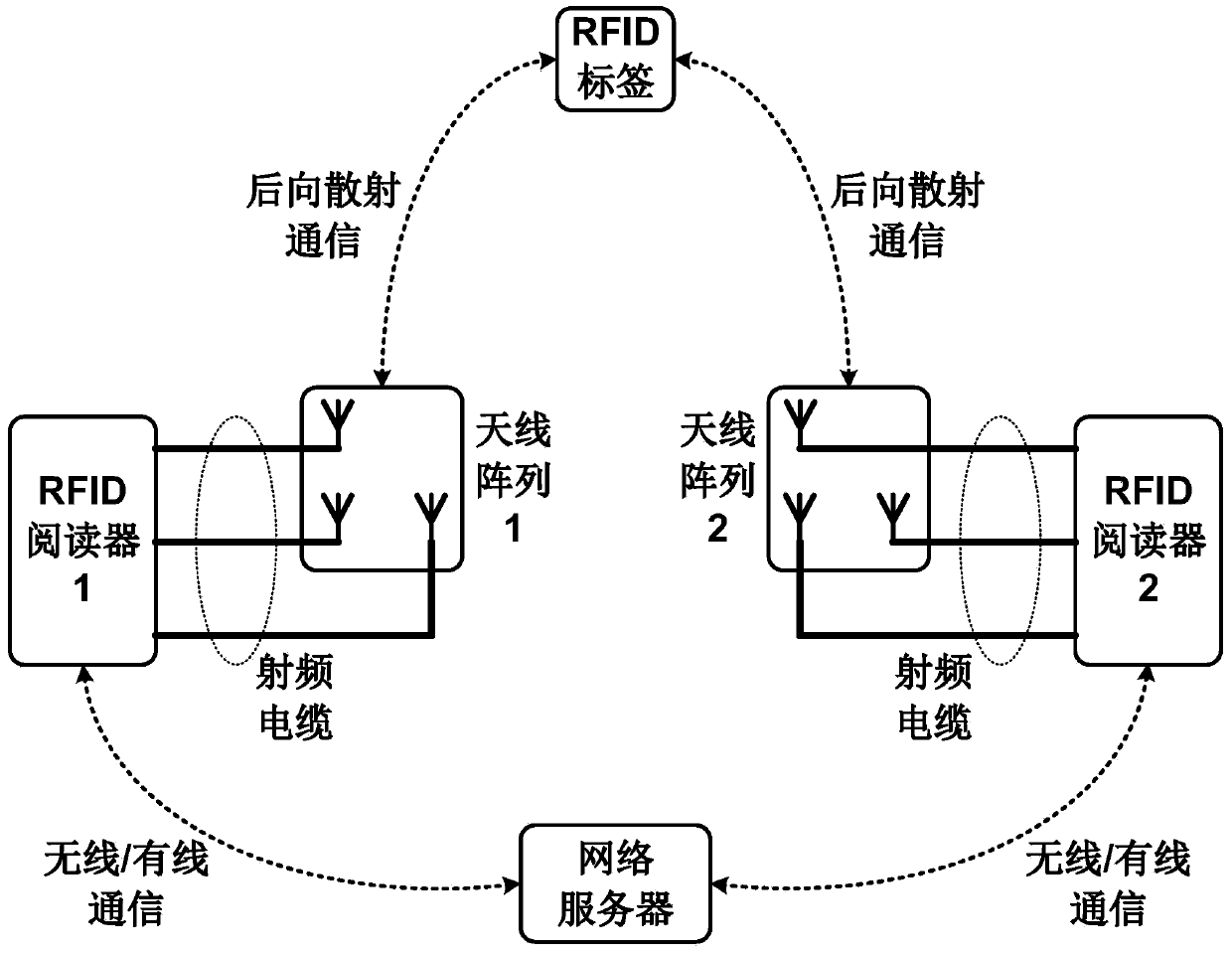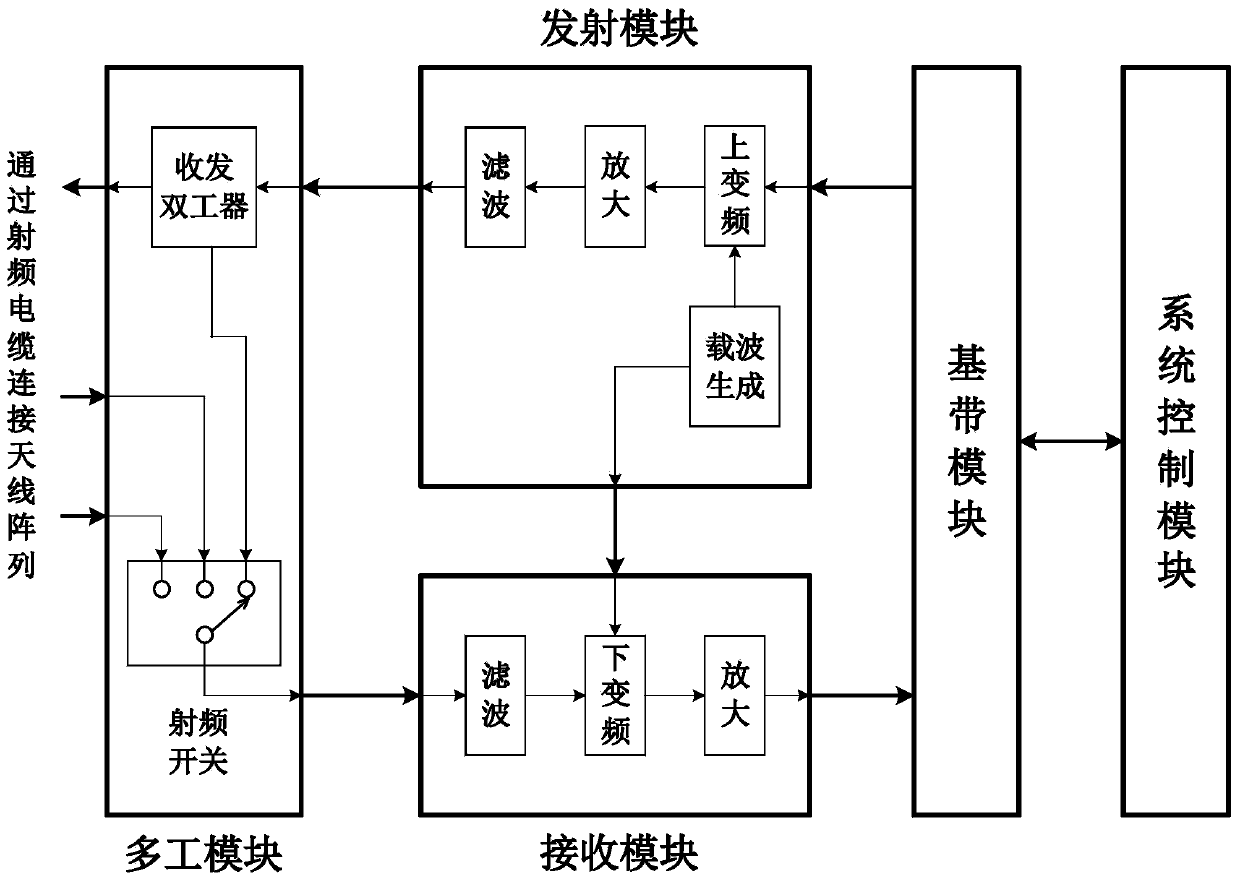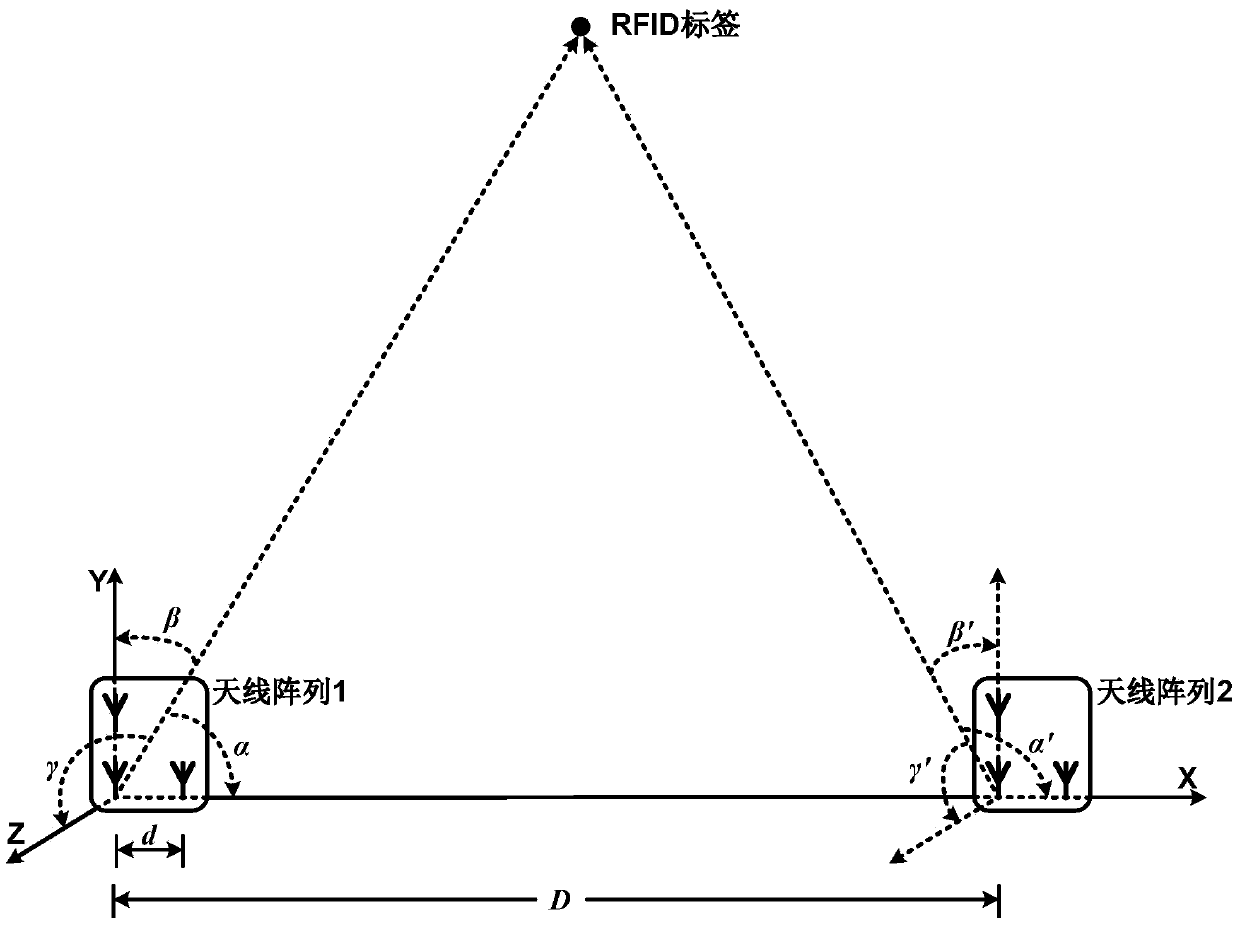Wireless positioning method and system based on antenna array phase difference direction-finding radio frequency identification (RFID)
An antenna array and wireless positioning technology, applied in the field of wireless positioning, can solve problems such as interference, adding RFID readers, high complexity and cost
- Summary
- Abstract
- Description
- Claims
- Application Information
AI Technical Summary
Problems solved by technology
Method used
Image
Examples
Embodiment Construction
[0039] With reference to the attached schematic diagram, for an example of a wireless positioning system using dual RFID readers to implement radio frequency identification based on antenna array phase difference and direction finding, the present invention will be further described in detail below.
[0040] Such as figure 1 As shown, the components of the wireless positioning system of the present invention include: 1. RFID reader; 2. antenna array; 3. radio frequency cable; 4. RFID tag; 5. network server. The system uses two RFID readers, that is, RFID reader 1 and RFID reader 2, which can perform both double-reader cross-direction-finding positioning and single-reader direction-finding and distance-finding positioning. The system uses two antenna arrays, that is, antenna array 1 and antenna array 2, which work with RFID reader 1 and RFID reader 2 respectively. The antenna array is connected to the reader through multiple radio frequency cables to transmit radio frequency si...
PUM
 Login to View More
Login to View More Abstract
Description
Claims
Application Information
 Login to View More
Login to View More - R&D
- Intellectual Property
- Life Sciences
- Materials
- Tech Scout
- Unparalleled Data Quality
- Higher Quality Content
- 60% Fewer Hallucinations
Browse by: Latest US Patents, China's latest patents, Technical Efficacy Thesaurus, Application Domain, Technology Topic, Popular Technical Reports.
© 2025 PatSnap. All rights reserved.Legal|Privacy policy|Modern Slavery Act Transparency Statement|Sitemap|About US| Contact US: help@patsnap.com



